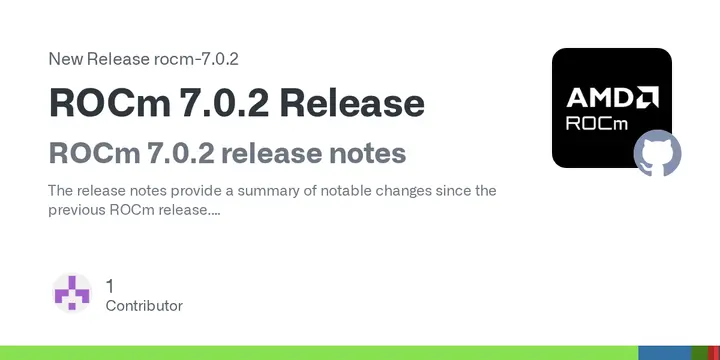Among the notable advancements in ROCm 7.1.0 is the ability to set power caps for AMD Instinct MI300X in virtualized environments, which leads to improved system efficiency and reduced energy consumption. The release also enhances support for multiple users on MI350 Series GPUs and aligns the HIP runtime more closely with NVIDIA CUDA standards, making it easier for developers to transition between platforms.
The software now supports a broader range of operating systems, allowing AMD Instinct MI325X and MI100 GPUs to work seamlessly with RHEL 10.0, SLES 15 SP7, Debian 13 and 12, and Oracle Linux 9 and 10. This expanded compatibility enables developers to maximize the ROCm platform's capabilities across various environments.
Key improvements have been made to libraries such as hipBLASLt and hipSPARSELt, which enhance performance for AMD Instinct GPUs. The introduction of new functionalities in rocAL for training Vision Transformer models further strengthens ROCm's position as a powerful tool for deep learning applications. Additionally, the release extends support for TensorFlow 2.20.0 and integrates MIGraphX, enhancing inference task efficiency.
Profiling tools, including the ROCm Compute Profiler and ROCm Systems Profiler, have also been updated to allow for better data collection and real-time monitoring. The transition from the ROCm Execution Provider (ROCm-EP) to the MIGraphX Execution Provider has been implemented to ensure better support and compatibility.
Documentation improvements provide clearer guidance for users, featuring new tutorials for AI developers and updated HIP documentation to streamline the transformation of GPU applications. Overall, ROCm 7.1.0 offers performance enhancements across various components, boosting efficiency for machine learning and AI workloads.
In summary, ROCm 7.1.0 stands as a significant advancement in AMD's efforts to create a robust and versatile software stack for HPC and AI, making it an invaluable resource for developers looking to optimize their applications and leverage the full potential of AMD's hardware. Future updates could continue to enhance compatibility with emerging technologies and frameworks, further solidifying ROCm's role in the evolution of high-performance computing
ROCm 7.1.0 released
AMD has released ROCm 7.1.0, an open-source software stack designed for high-performance computing (HPC) applications and generative AI. The latest iteration includes significant updates and enhancements that allow seamless GPU programming from the kernel level to end-user applications on various platforms, including AMD Radeon GPUs and Ryzen APUs. Key features of ROCm 7.1.0 include the ability to set a power cap for virtualized environments, improved support for multiple users, and enhanced deep learning capabilities through new functionalities in rocAL and extended support for TensorFlow. Additionally, profiling tools have been updated to provide real-time monitoring and data analysis, while documentation enhancements offer clearer guidance for users transitioning from ROCm Execution Provider (ROCm-EP) to MIGraphX Execution Provider.


